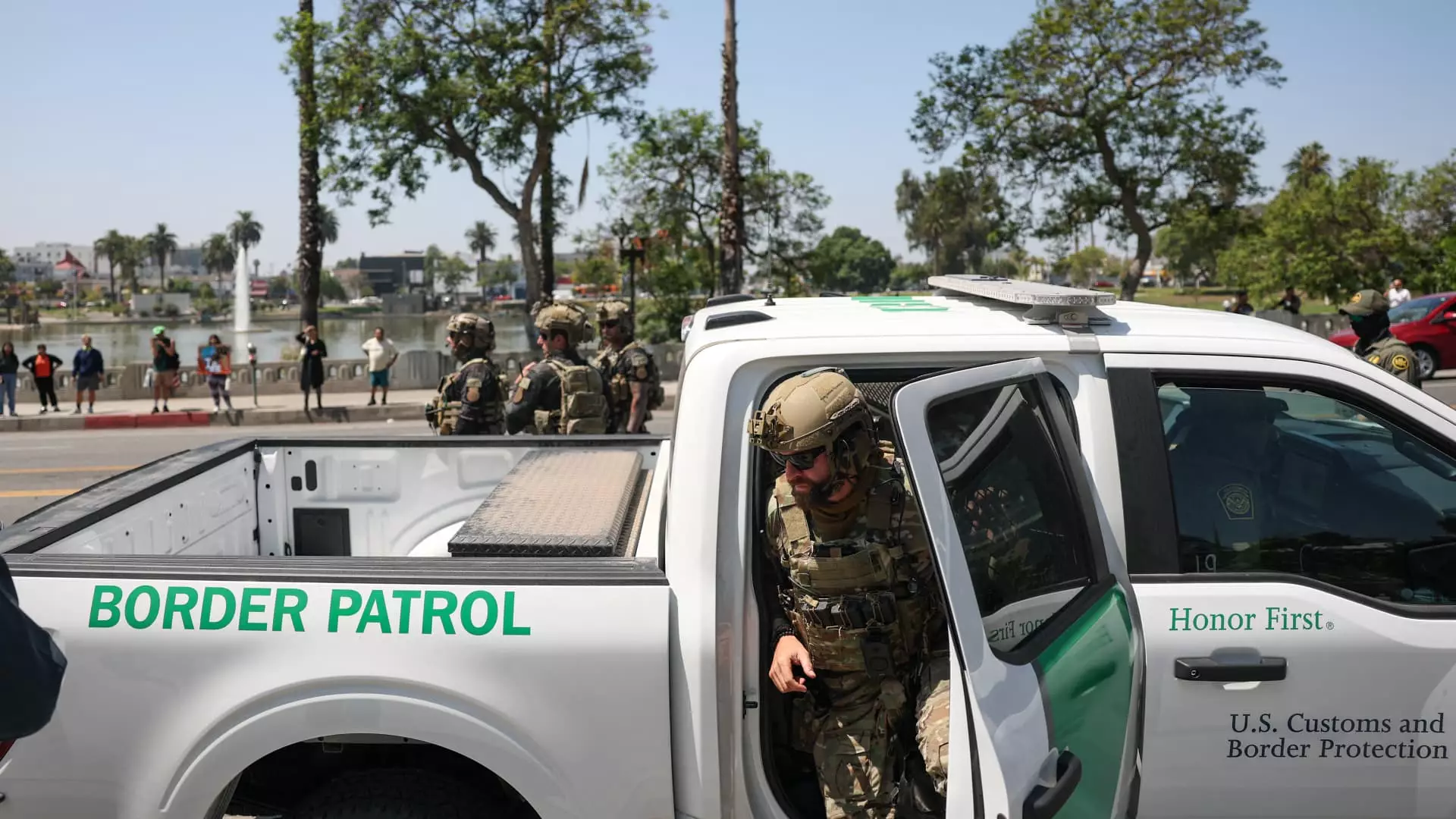In a compelling assertion of constitutional rights and human dignity, the recent decision by a federal appeals court to uphold a temporary restraining order on indiscriminate immigration stops signals a critical moment in the ongoing fight against systemic abuse of power. The Ninth Circuit’s rejection of the Trump administration’s aggressive enforcement tactics exposes a disturbing pattern—one that prioritizes racial profiling over lawful, ethical immigration enforcement. This ruling is not merely a legal technicality; it is a reaffirmation of the foundational principle that law enforcement must operate within the boundaries of the Constitution, respecting individual rights regardless of race, accent, or background.
This case underscores a fundamental question: Should the government wield its authority to target vulnerable populations based on superficial characteristics rather than tangible evidence or lawful suspicion? The court’s stance favors the latter—rejecting the administration’s attempt to justify sweeping searches and arrests rooted in racial indicators. Such practices, which specifically target communities of color under the guise of immigration enforcement, undermine trust in institutions, perpetuate discrimination, and threaten the core values of fairness and equality. The judges’ skepticism of the government’s claims reveals an essential commitment to safeguarding civil liberties from flagrant overreach.
The Human Cost of Racial Profiling and Unchecked Power
Behind the legal rhetoric lie real human stories of pain and injustice. The case features plaintiffs like Los Angeles native Brian Gavidia, whose arrest—captured on video—serves as a stark reminder of the brutal reality “enforcement” can impose. Gavidia’s cry of “I was born here in the States” encapsulates the tragedy of a system that can mistake citizens for undocumented immigrants simply because of where they live or how they speak. These incidents aren’t isolated—they exemplify a broader pattern of racial discrimination where Latino communities face intensified scrutiny, sometimes merely because of their appearance or linguistic traits.
Such tactics sow division and foster a climate of fear within immigrant communities and their allies. When people are subject to arrests and searches based on ethnicity or accents, it erodes trust and cultivates hostility toward law enforcement. The court’s decision stands as a bulwark against this culture of profiling, emphasizing that constitutional protections are meant to shield individuals, not targets of racial or cultural biases. It is a rallying cry that the fight for fairness and justice cannot be sidelined in the name of “immigration enforcement,” especially when such enforcement becomes an instrument for racial discrimination.
The Risks of Overreach and the Need for Checks and Balances
Federal authorities have argued that they merely use certain factors—race, language, location, occupation—in their assessments of suspicion. But courts rightfully recognize that these factors, when used alone, constitute an inherently biased screening process. They form a dangerous “broad profile” that, rather than ensuring lawfulness, risks entrenching prejudice within law enforcement practices. The judges’ sharp questioning highlights a critical concern: when does consideration become discrimination? Their insistence that these factors cannot justify arbitrary stops underscores the principle that law enforcement must operate within clear, constitutional boundaries.
This legal stance is essential in resisting the temptation to use authority as a tool of racial profiling. It exemplifies a vigilant judiciary that refuses to allow fear and prejudice to override constitutional safeguards. Moreover, it reflects a balanced recognition that immigration policies should be rooted in law and due process, not in systemic bias or political expediency. The court’s skepticism of the government’s vague claims about “not doing” certain practices serves as a warning: unchecked power can quickly morph into systemic injustice. The courts have a moral and legal obligation to ensure that enforcement is targeted, fair, and, above all, lawful.
The Role of Local Leadership in Upholding Justice
Local officials, like Los Angeles Mayor Karen Bass, play a vital role in positioning their communities against unconstitutional enforcement. Bass’s declaration of a “victory for the rule of law” signifies a broader resistance to federal overreach. Such leadership is essential in fostering a climate where community safety is aligned with civil rights, rather than compromised by racial profiling. The city’s commitment to protecting its residents from illegal tactics by federal agents illustrates how local governments can and should act as guardians of justice when federal policies threaten civil liberties.
This stance also highlights an important point: the fight against unconstitutional practices is not solely a matter for courts; it requires active civic engagement and leadership at every level. Local governments, advocacy groups, and citizens must collectively resist policies that undermine the principles of equality and dignity. The court’s decision, reinforced by community leaders, asserts that justice is a collective effort—not merely the domain of lawyers and judges but a shared responsibility to protect fundamental rights from being trampled under the guise of enforcement.
The Significance of a Moral and Legal Victory in a Divided Nation
This case serves as a moral compass amidst a political landscape often marred by divisive rhetoric and policies rooted in exclusion. It demonstrates that when institutions stand firm against abuses of power, they reinforce the very ideals that define a fair and just society. While the federal government may argue that they need broad discretion to enforce immigration laws, the courts rightly counter that such discretion cannot come at the expense of constitutional rights.
The ruling sends a powerful message: laws must serve justice, not prejudice. As a society, we must remain vigilant against policies that threaten to normalize racial profiling and unchecked authority. Upholding civil liberties in immigrant communities is essential to maintaining a just and equitable nation—a nation where everyone’s rights are safeguarded, regardless of their background or origin. This decision exemplifies a crucial step toward ensuring that enforcement remains rooted in law, not prejudice, reaffirming the belief that justice must serve all, equally and fairly.


Leave a Reply